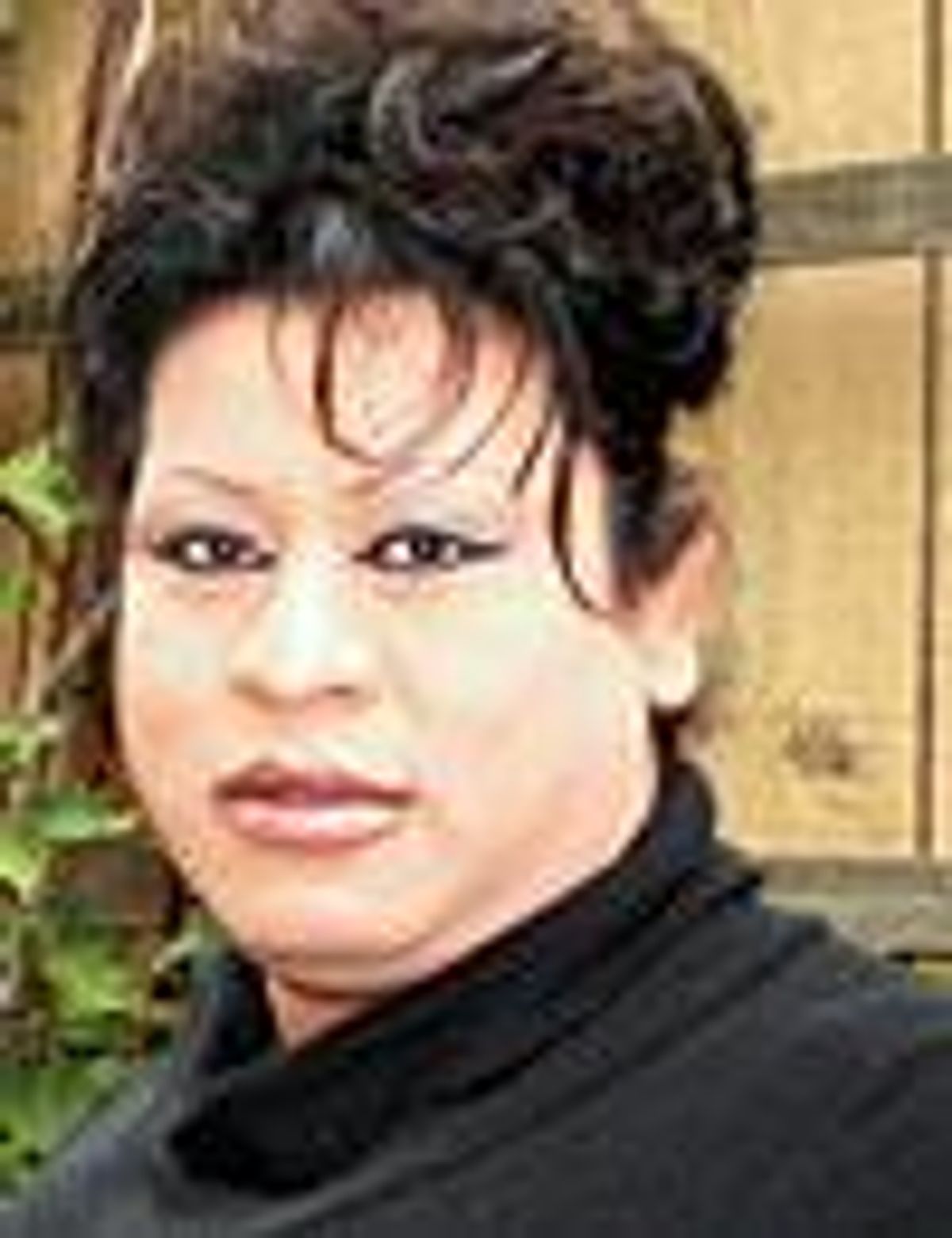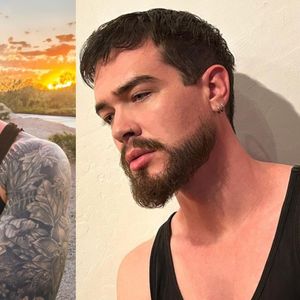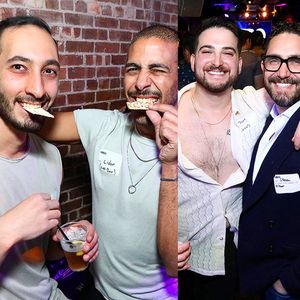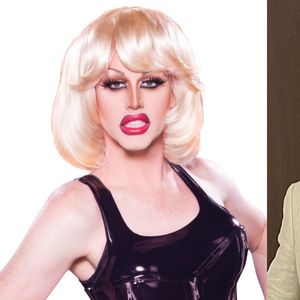Two hours south
of San Francisco in the agricultural hub of Salinas,
Calif., a Mexican immigrant worked as a foreman in a produce
packing plant, supervising nearly 100 people for eight
to 10 hours a day, sometimes seven days a week. In
three years on the job, there were never any problems
with coworkers or the boss -- until the foreman began
transitioning to be a woman.
"After I
started taking the hormones and dressing like a
woman," Sandra says in Spanish via a
translator, "I started being treated
differently."
Her salaried pay
was decreased to an hourly rate, and she suffered almost
constant verbal abuse. Her boyfriend, who worked at the same
plant, was beaten so viciously, he needed to take sick
leave for three days. Yet instead of the attacker
being fired, Sandra was demoted from her supervisory
job. "I knew they were discriminating against me for
who I was," she says. "And they
continued to put pressure on me that made my life very
difficult."
So Sandra fought
back. She and her boyfriend found an attorney, sued
their employer, and eventually won a settlement out of
court. And as the case progressed, Sandra says that
she realized something vital: "There's a
lot of different types of help for us."
Lisa Cisneros, a
28-year-old attorney, is one of those sources of help. A
graduate of the Boalt Hall School of Law at the University
of California, Berkeley, Cisneros grew up in Salinas
and now practices law for a special kind of
client in her hometown: LGBT farmworkers.
"They're very brave," says Cisneros
from her office in East Salinas, a heavily Latino
neighborhood with a large farmworker population.
"Imagine being a transgender woman working in
the middle of a broccoli field. It takes a lot of
courage."
For Cisneros, who
came out as a lesbian while still living in Salinas,
her work couldn't be more meaningful or important. As
the head of Proyecto Poderoso (or Powerful Project), a
rural legal project for low-income LGBT people, she
describes her mission as making "safe places
for people to live, work, and go to school."
Proyecto
Poderoso, cosponsored by California Rural Legal Assistance
and the National Center for Lesbian Rights, is one of
the first outreach programs of its kind in the United
States. Started in September 2007 with a grant from
Pride Law Fund's Tom Steel Fellowship, the project
was conceived after attorneys for CRLA noticed an
increasing number of cases involving sexual
orientation discrimination and harassment, particularly
in Salinas, a magnet for Latino farmworkers. CRLA has 21 law
offices throughout the state and provides free legal
services to low-income people, many of whom are
Spanish-speaking.
The increase in
cases, says Mike Meuter, CRLA's director of
litigation, advocacy, and training, was the result of
comprehensive pro-gay workplace legislation passed and
signed into law in California earlier this decade.
Once awareness of these state-protected rights started to be
raised in places like Salinas, more and more gay,
lesbian, and transgender clients, including Sandra,
were walking into CRLA offices. By 2006, Meuter says,
the nonprofit realized "we didn't have the
expertise in-house, and we needed to do
something."
In the meantime,
Cisneros was finishing up her law degree at Berkeley. As
a student, she was one of the senior editors of the
California Law Review, worked as a judicial
extern in federal court, and received the prestigious
Francine Diaz Memorial Award for her public service and
contributions to the university. As she was preparing to
graduate, she received an e-mail about Proyecto
Poderoso.
When she got it,
Cisneros says, "I knew I couldn't ignore it. I
grew up in Salinas, and I'm bilingual, gay, and
Latina. There aren't a lot of people who can
bridge these different communities."
So instead of
heading off to a big law firm in San Francisco, Cisneros
headed home. While in high school, she had actually spent a
week in the fields picking strawberries. "The
job is very tough physically," she says. During
their youth her grandparents had earned extra money by
picking fruit.
During her time
at Berkeley, Cisneros was also a law clerk at the
National Center for Lesbian Rights, so she contacted the
organization to see if it wanted to team up with CRLA.
A deal was soon made, yielding not only a committed
legal activist in Cisneros but a key partnership with an
LGBT group that had the kind of legal expertise CRLA was
seeking for Proyecto Poderoso. NCLR, says Meuter,
"has years of experience in this field that we
don't have."
In her job
Cisneros consults with CRLA lawyers about possible
violations of sexual orientation antidiscrimination
law, raises awareness of LGBT workplace rights among
Latinos in Salinas and other towns, and handles her
own cases. Her experience is a strong rebuke to the notion
that "everyone who's gay lives in San
Francisco and Los Angeles," she says.
"There's a definite LGBT population in the
rural areas."
Indeed, according
to Gary Gates, a senior research fellow at the Williams
Institute at the University of California, Los Angeles, the
numbers prove Cisneros's assertion: His
analysis of Census data indicates that areas outside
large metropolitan areas like L.A. and San Francisco have
had the biggest increases in same-sex couples.
"Gay people are becoming more visible outside
major urban areas, and they need more services" in
those places, Gates says. He adds that residents of
rural areas and smaller communities "can also
be more isolated, so they don't have the same kind
of social networks to know the various issues."
But raising
awareness of antidiscrimination law is one thing --
enforcing it is also a top priority for Proyecto
Poderoso. Although California is a good state
generally for LGBT workers, says Shannon Minter,
NCLR's legal director, "the laws may as
well not exist if gays and lesbians in rural areas
don't have access to legal assistance. And employers
must know they can't go around these
laws."
Cisneros says she
regularly hears complaints of harassment on the job,
threats and displays of physical violence, and lower pay for
farmworkers who are gay or perceived to be gay.
"There are a lot of power plays in the
fields," she says, but "LGBT people are only
asking for a job and to work with dignity."
One worker was
demoted from harvesting broccoli with other men when it
was discovered he was gay. His pay rate was reduced, and he
was moved to a job assigned to female workers in the
wrapping and sorting area. "He was humiliated
because he wasn't seen to be a macho man,"
Cisneros says.
Another male
worker, whose job involved detailing small airplanes, was
soft-spoken and more sensitive than his peers. Although he
wasn't gay, coworkers slapped that label on
him; they forced him to look at heterosexual porn, and
he became the target of verbal abuse, even from his
supervisor. A lesbian couple working at a fast-food
restaurant endured daily verbal harassment from their
coworkers and supervisor, who preferred to address
them with derogatory epithets rather than their names.
Proyecto Poderoso
holds employers who allow such harassment accountable
by going to court. In an important display of unity, it also
helped LGBT farmworkers organize a Gay Pride Day in
Salinas. "It was only a one-block walk,"
Cisneros says, "but a lot of people showed up, and it
helped make them feel they were part of a
community."
"Legal
services in rural areas is really the new frontier,"
says Minter of NCLR. Says Cisneros: "It really
comes down to this: Who should be protected by
antidiscrimination laws? Are they just for people who live
in the big cities? Or are they for everyone?"



















































































